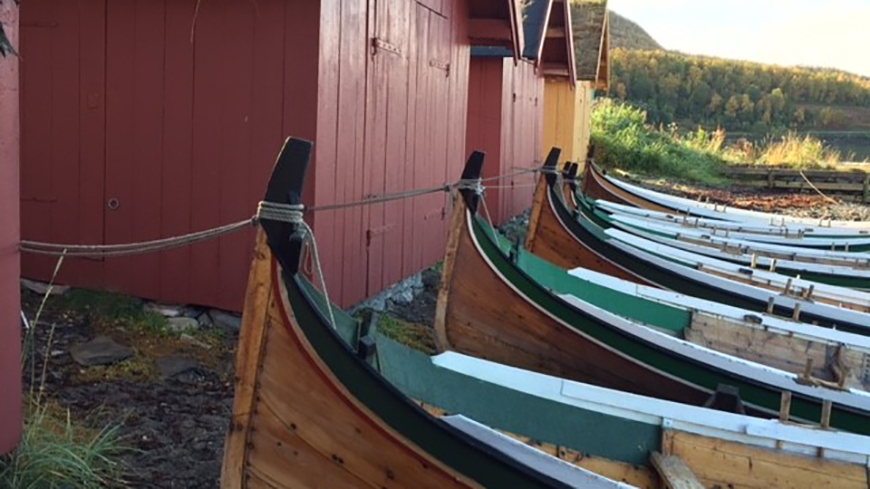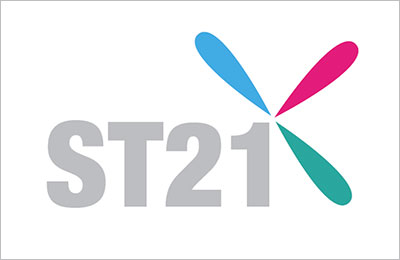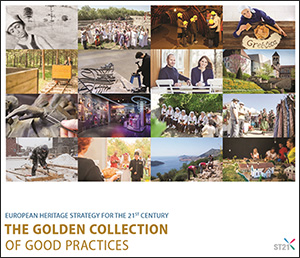Location of the initiative:

Relation to Strategy 21 Recommendations:
Time span of the initiative:
Start Date: 1994 / End Date: On-going
Motivation / Methodology
There is a strong voluntary sector in Norway, with over 60% of the population involved in some kind of voluntary work.
There are numerous NGOs in the cultural heritage sector alone, each established to tend to – and create awareness about – their own field of interest, whether it is preserving buildings, restoring vessels or documenting the intangible cultural heritage. They have highly skilled members and carry out a range of activities to reach their respective goals. As such, each NGO plays an important role in taking care of our cultural heritage.
In 1994, there was an initiative from the Ministry of the Environment (now the Ministry of Climate and Environment) to establish an umbrella organisation – or federation – that would encompass all these various interests. The aim was to create an overarching body where the organisations could come together, learn from each other and establish joint initiatives. Until then, there had been little cooperation between the cultural heritage NGOs. The federation was to be modelled on a similar federation for NGOs working with outdoor activities, which was considered a great success. While the organisations would maintain their independence and continue to cater for their own areas of interest, a federation would provide a valuable network, encourage cooperation and promote the value of their combined efforts. The federation would also act as a spokesman for the sector, giving the NGOs a stronger voice for a cause they all have in common: protecting and endorsing our cultural heritage.
When the Norwegian Federation of Cultural Heritage Organisations was established in 1994, 11 organisations signed up to be members. Today, the federation has 24 member organisations with over 230 000 members in total. The oldest member is the National Trust of Norway, celebrating its 175th anniversary in 2019. The youngest member is the historic aviation organisation, which was established in 2016. The largest organisation is the association of historic societies, with over 70 000 members, the smallest organisation has just over 100 members.
Obstacles / Barriers
When the Norwegian Federation of Cultural Heritage Organisations was established in 1994, an interim board of directors was elected with representatives from some of the member organisations. The Board was tasked to outline a mandate for the federation and establish its statutes.
One of the first obstacles was to provide funding for the federation. Applications were sent to the Ministry of Climate and Environment and the Ministry of Culture, who – after some consideration – accepted to provide the newly established federation with a small grant “to develop a plan for the foundation of the federation”. A project manager was appointed to conduct an initial survey of the activities carried out by the cultural heritage NGOs, in order to work out the role and mandate of the federation.
With increased funding from the Ministries and a stable income from membership fees, the federation was able to establish a more permanent administration in late 1996 and engaged a manager on a part time basis. Since then, the federation has had a gradual and steady growth in terms of income, and today has an administration with four staff, two of whom are part time. This includes the part time position of a European Heritage Days coordinator – a pan-European project initiated by the Council of Europe. In Norway, the role of coordinator was delegated to the Norwegian Federation of Cultural Heritage Organisations in 2001.
The funding from the Ministry of Climate and Environment and the Ministry of Culture has been pivotal to establish and develop the Norwegian Federation of Cultural Heritage Organisations. Ensuring a steady income is still of major importance for the federation. Increased funding would allow new initiatives which – in turn – would generate more activity in the member organisations.
At a time of many national – and indeed global – challenges, the government funding is under constant scrutiny. A hugely important task for the federation is hence to ensure a continued governmental interest in and support for cultural heritage, and the work done by the NGO sector. It is also important for the federation – and for the sector in general – to seek alternative sources of funding. As such, lobbying is an important task for the federation.
The magnitude of NGOs is a strength as well as a weakness. As independent NGOs, the organisations promote their own interests in terms of lobbying. They provide in-depth knowledge to the matters at stake and put forward their own specific interests. Many of the NGOs, however, are less experienced or have less capacity to do lobbying. The federation provides a voice to all the NGOs and conveys messages about issues they have in common.
In general, the scale – and importance – of the work carried out by the cultural heritage NGOs is often under-communicated. The federation helps building awareness and promoting the activities – and results – of the member organisations. Furthermore, as an umbrella organisation, the federation is in a unique position to see the bigger picture, more so than the organisations themselves.
Change / Impact
The Norwegian Federation of Cultural Heritage Organisations has since its outset developed several strategic initiatives for the member organisations. The main task has been to establish meeting points for the members to enable them to exchange information and ideas, inspire each other and share experiences. One of the major results of establishing a federation has been to provide a network for the cultural heritage NGOs and to create an awareness amongst the NGOs that they are part of a greater bottom-up movement. It is a greater understanding in the organisations that the work they do is important and extremely valuable to many people, and indeed to the nation.
is another key task for the federation. As such, we give a voice to all member organisations and convey messages on behalf of a unified sector. This is a result in itself.
is a range of results, from lobbying, from changed wording in key political documents to general awareness raising about the value of cultural heritage. The federation has arranged political debates, created several meeting points with the bureaucracy and been invited into workshops and policymaking processes nationally as well as locally. Moreover, the federation stays updated on relevant international information and trends, as well as on national ones, which is useful both to the NGOs and in terms of lobbying.
Since the Norwegian Federation of Cultural Heritage Organisations took over the role as European Heritage Days coordinator, there has also been a steady increase in the number of events throughout the country.
Lessons learned
The Norwegian Federation of Cultural Heritage Organisations marks its 25th anniversary in 2019. As part of the jubilee we have documented the federation’s history in book form. The book contains interviews with previous board directors and managers, articles from a selection of member organisations and greetings from Ministers, directorates and network representatives. The book has provided us with valuable insight into the various stages of the federation’s history.
Some main challenges have been identified and addressed, including:
· the need for funding;
· the need to bring the cultural heritage NGOs together to pursue a unified goal, whilst maintaining the organisations’ independence.
The funding from the government has been pivotal. The government of Norway has generously funded the federation over the years – indeed encouraging the voluntary sector in general. However, governmental priorities can change. Documenting the value of the NGO activity is important, and a lot of effort is put into awareness raising and lobbying. We have seen many results from lobbying efforts over the years, and the funding for the federation has been steady. Nevertheless, alternative sources of funding should also be identified and encouraged.
The federation has established several meetings points and created a valuable network for the organisations. This network allows them to exchange ideas, learn from each other and develop common guidelines or political statements. Moreover, the federation provides the organisations with useful information about political processes or other relevant issues that they might not have the capacity to be updated on themselves. Increasingly we see that member organisations cooperate about lobbying, back each other up and refer to common results and achievements in the cultural heritage NGO community. As such, the federation has, to a large degree, achieved a greater sense of unity between the member organisations. There is also increased cooperation on projects and events like the European Heritage Days. This unity between the cultural heritage NGOs makes them a forceful and visible movement. This is considered a definite strength and has been acknowledged by partners and politicians alike.
Online resources
Facebook: https://www.facebook.com/Kulturvern/
Contact information
Skjetne, Toril
The Norwegian Federation of Cultural Heritage Organisations
[email protected]
www.kulturvern.no
Source of financing
Public financing





